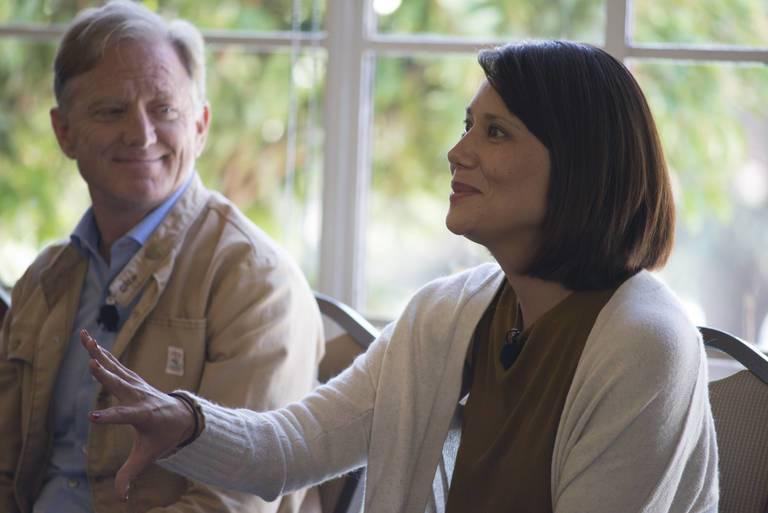Bringing “Truth to Power” on Climate Change Through Partnerships
By Jim Witkin

Originally published by TriplePundit
In 2006, Al Gore’s film An Inconvenient Truth introduced audiences to the science of climate change, depicted its consequences, and sparked an ongoing debate between the believers and deniers. The film broke box office records for documentaries and won a number of awards including Best Documentary Feature at the 2007 Oscars. That same year, Gore won the Nobel Peace Prize.
But even with the great success of the film and recognition for Gore, since its release, the actions taken to mitigate the impacts of climate change have had mixed success.
It’s true that clean energy sources, like wind and solar, now account for a bigger part of our energy mix compared to 2006. But at the same time, CO2 are expected to reach record highs in 2018.
Still, Al Gore remains hopeful and committed to his mission. His considerable optimism is the centerpiece of the follow-up film An Inconvenient Sequel: Truth to Power. The film, released in July 2017, follows Gore as he travels the globe meeting with world leaders, conducting climate leadership trainings, and participating in the 2015 United Nations Climate Change Conference in Paris.
While the first film helped bring about a conversation on climate change, the sequel has aimed to motivate audiences to act on the film’s message. Even if governments and corporations fail to act, individuals still can. To coincide with the film’s release, the film’s producer, Participant Media, launched a 10 Days of Action campaign (#BeInconvenient) to build the bridge between the film and taking action.
Participant teamed with a number of NGOs – including the Climate Reality Project, Sierra Club, Environmental Defense Fund, Climate Hawks Vote, and Cool Effect – to develop co-branded websites that present a number of actions for individuals to take where they can use their voices, their votes, and their choices as consumers to fight climate change.
“This movie offered up the opportunity for a cultural moment that could engage all of the very good and very important work that’s happening around the world by NGOs, foundations, and individuals, who are committed to saving the planet,” said David Linde, CEO of Participant Media, in an interview with Fast Company.
Among the many meaningful actions consumers can take is around reducing their carbon footprints through the purchase of carbon offsets. A carbon offset represents one tonne of carbon dioxide that hasn’t been emitted into the atmosphere because of some carbon reduction project.
Money paid for offsets funds projects like helping poor families access efficient cookstoves, preserving forests or capturing methane that seeps out of the ground. However, it’s important to only support projects that have been reviewed carefully and are completely “additional,” meaning they wouldn’t have happened without the funding from carbon offsets.
And while important, the mechanics of carbon offsets and additionality are not always easy to grasp. That’s why Participant chose Cool Effect, the online carbon offset crowdfunding platform, to be a featured action partner on the film.
According to Amanda Chen, VP of Social Impact, Participant Media, “Cool Effect continues to impress as an impact partner with their platform and the ease-of-access they’ve created around offsetting carbon. Their user experience is seamless, which allowed us to interface directly with audiences on climate-change-fighting solutions that were user-friendly. They’ve created a highly engaging space that has transformed an otherwise difficult concept into something that makes sense to everyone.”
Besides simplifying the process of purchasing offsets, Cool Effect also tells the backstory of each project, describing how it benefits the local communities. Engaging people through this type of storytelling was also an important aspect of the partnership between Participant Media and Cool Effect.
“We do what we do precisely because we believe that powerful storytelling has the ability to accelerate positive change,” said Chen. “In this way, we value our partners immensely – because we wouldn’t be able to do what we do without them. This was very much the case with Cool Effect and their partnership on An Inconvenient Sequel.”
Participant was founded in 2004 as a film production and a social impact company. Each of their films takes a strong advocacy stance. “We believe in the importance of the messages we promote through film,” Chen said, “while recognizing the importance of conducting business in a responsible way.”
The company took several actions on its own to minimize the environmental impact of making An Inconvenient Sequel. This included purchasing offsets for all emissions related to the film’s production, something they started to do in 2017 for all their films, according to Chen.
Besides purchasing offsets, the company reduced impact by minimizing food and material waste, using refillable containers and avoiding plastics, and reducing travel by using conference and video chats whenever possible.
Film crews were kept as small as possible to reduce the need for multiple vehicles, airplane tickets, and meals. Crews that did travel, following Al Gore around the world, sought out eco-friendly hotels, according to Chen.
Even though the film has been out for six months, the time is always right to take the pledge to #BeInconvenient and use your voice, your vote, and your choice to solve the climate crisis. Visit the Inconvenient Sequel website to connect with Cool Effect and the other action partners.
Jim Witkin is a writer and researcher based in Silicon Valley focused on business, technology and the environment. His work has been featured in the New York Times and Guardian newspapers on topics that include: sustainable business practices, clean tech, the environment and next generation transportation technologies. He holds an MBA in Sustainable Management from the Presidio Graduate School. Contact him at jameswitkin@gmail.com
